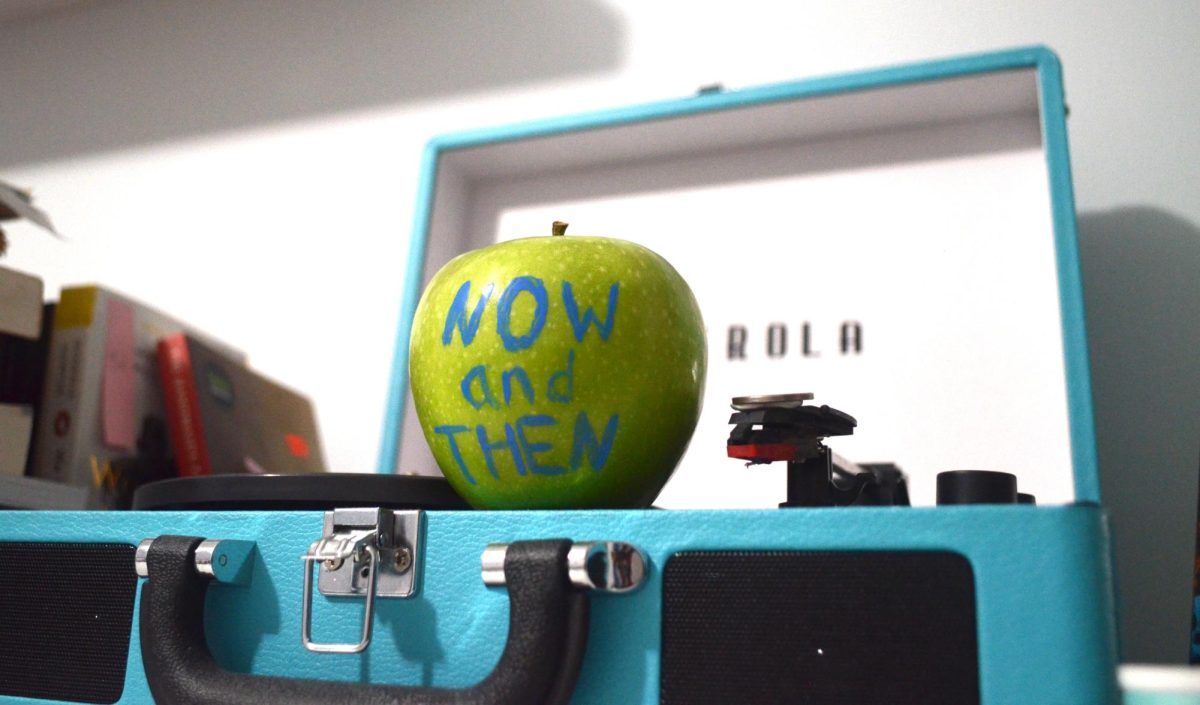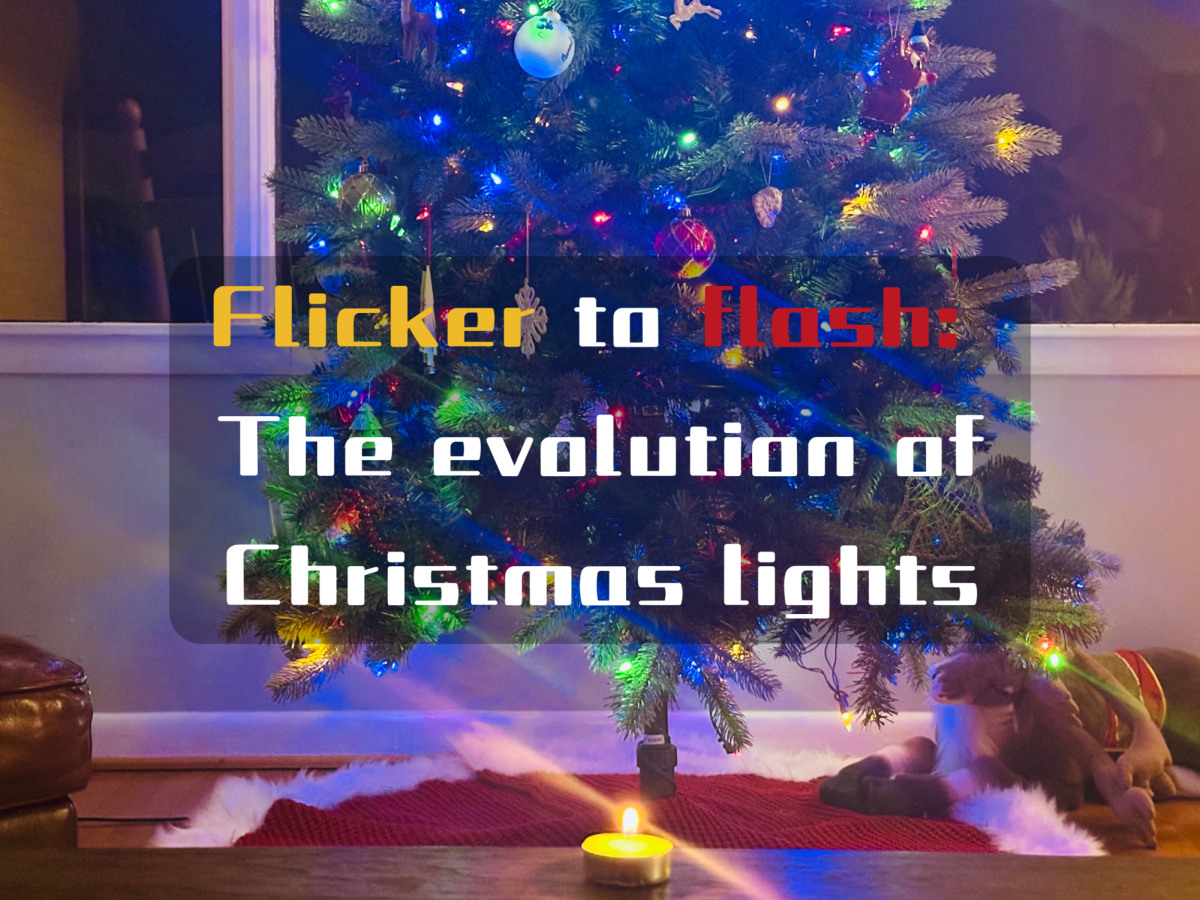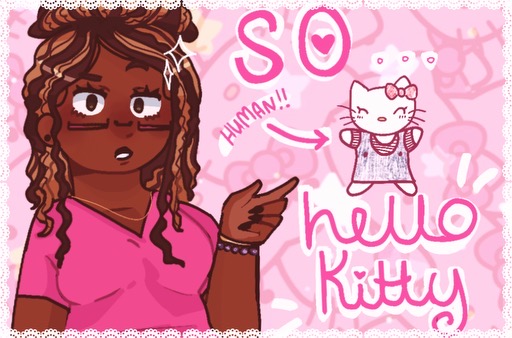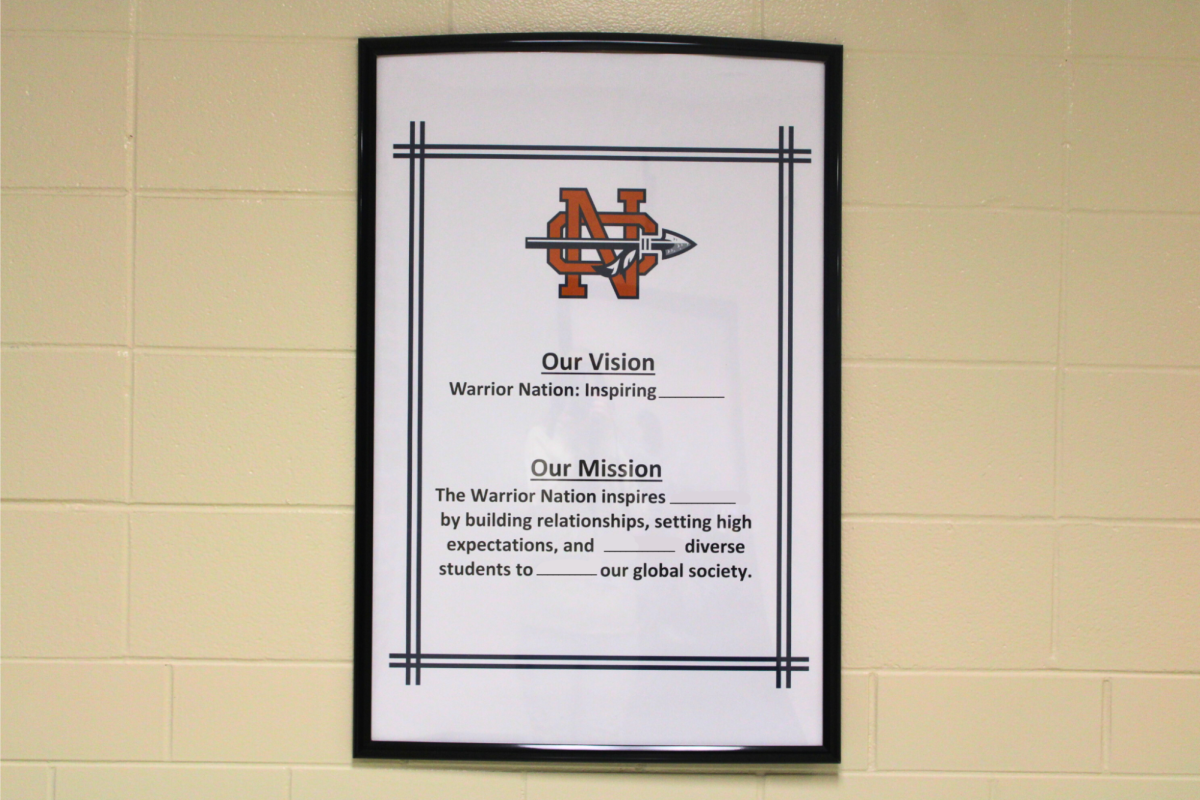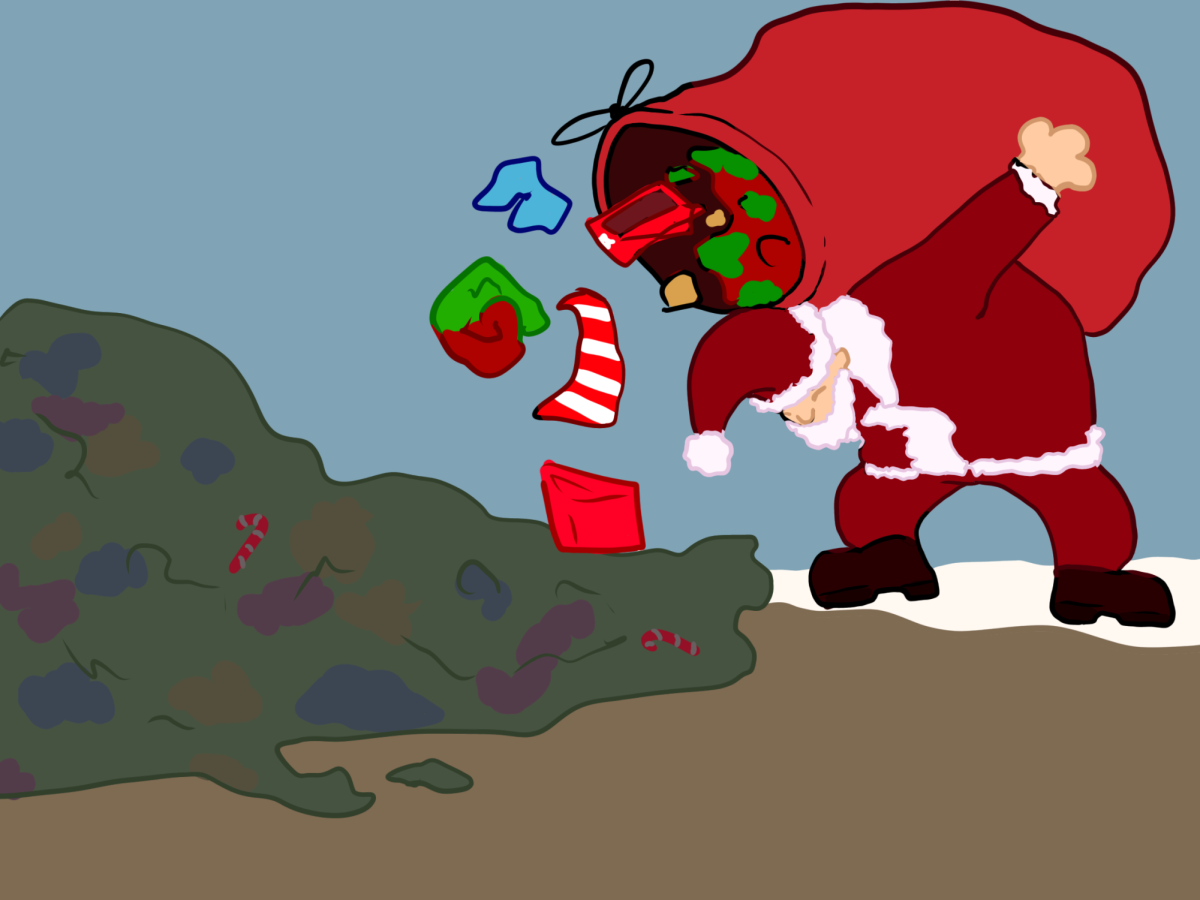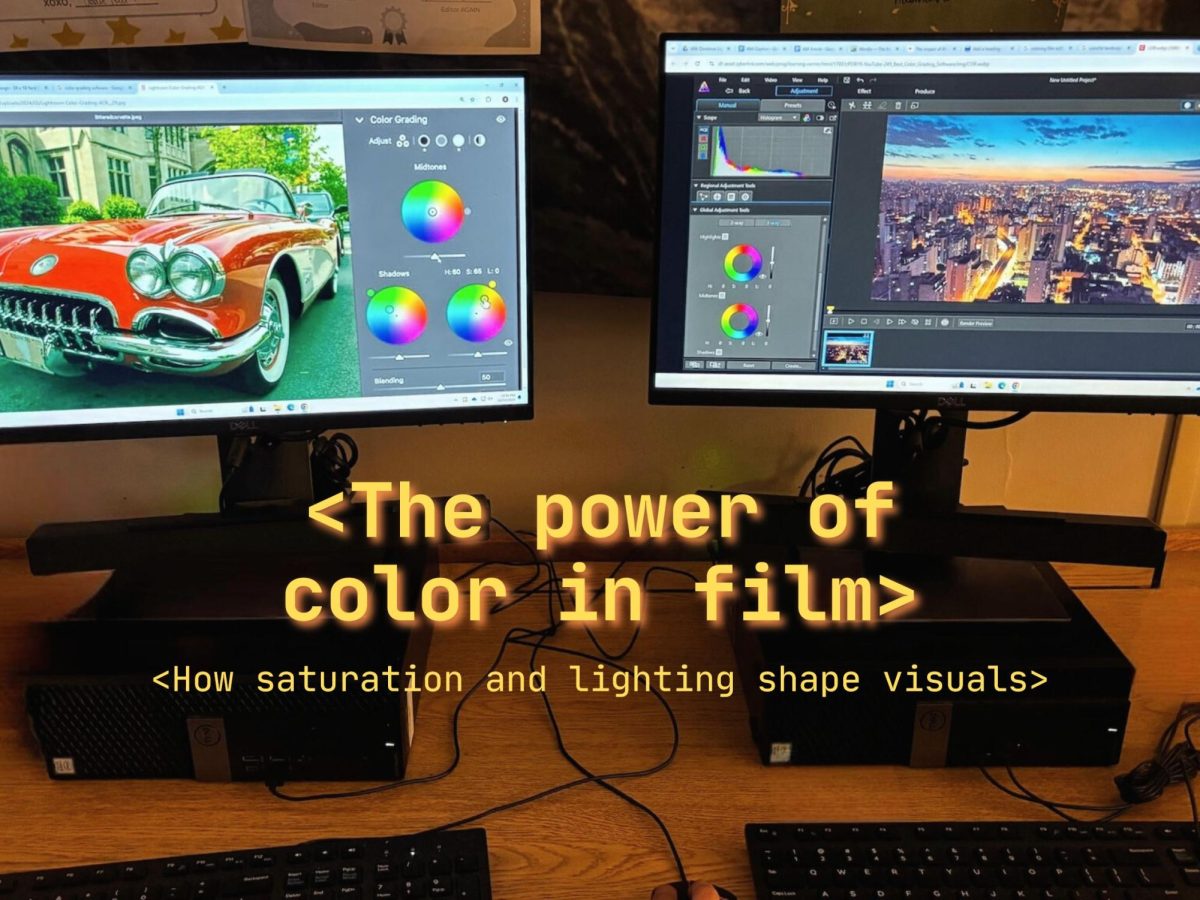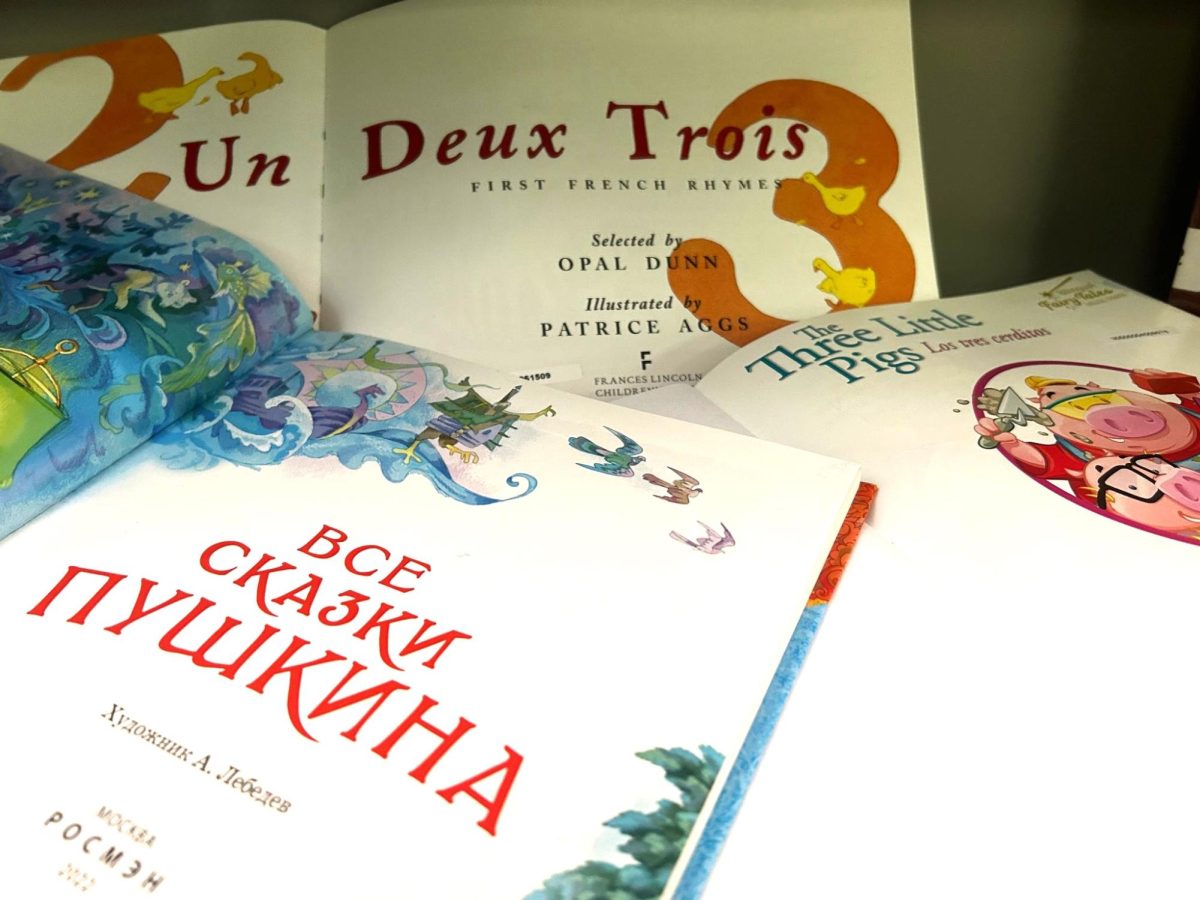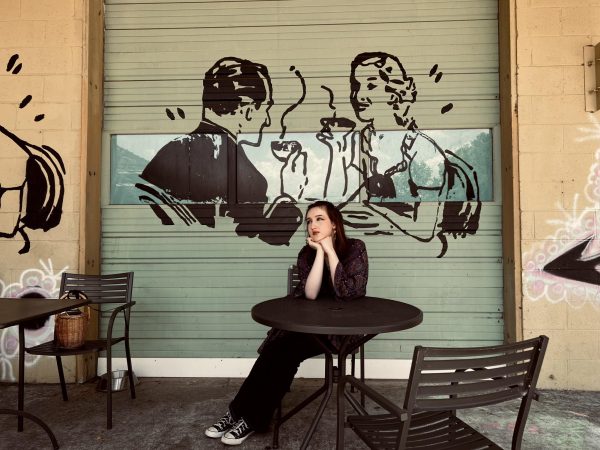In the late ‘70s, briefly before his death, John Lennon recorded a demo of the song, “Now and Then”. Lennon reportedly wrote, “For Paul” on the tape, leading to Yoko Ono’s delivery of it to Paul McCartney after Lennon’s death. The Beatles released the song November 2, featuring the full Fab Four as well as an orchestra. The group considered working on the song for the 1995-1996 Anthology series while George Harrison still lived, but due to issues with the audio, the song remained unreleased. The Beatles instead released Anthology with the only other two songs they have created since their breakup: “Free as a Bird” and “Real Love”.
In 1956, Lennon and a close-knit group of friends formed The Quarrymen in Liverpool, England. Shortly thereafter, McCartney joined the band, and when the need arose for an additional member, he invited Harrison. By 1962, the final piece of the puzzle, Ringo Starr, had joined the group. The band’s journey to stardom began after spending approximately two years in Hamburg, Germany, where they further perfected their skills by performing at various clubs and bars.
Brian Epstein signed the group under his management in January 1962 after seeing a number of shows in their hometown in England. His management brought the Beatles to a new sphere, propelling them into the public eye. Their first single, “Love Me Do”, reached number 1 in the U.S. in 1964. In February of that year, the Beatles made their first television appearance in the U.S. on the Ed Sullivan Show, kickstarting a global mania. The Beatles made 13 studio albums during their time together before 1970. In that time, they altered their image significantly while maintaining a cult-like following. Although Mark David Chapman killed Lennon in 1980 and Harrison died in 2001, the group came together again through time to create a new song.
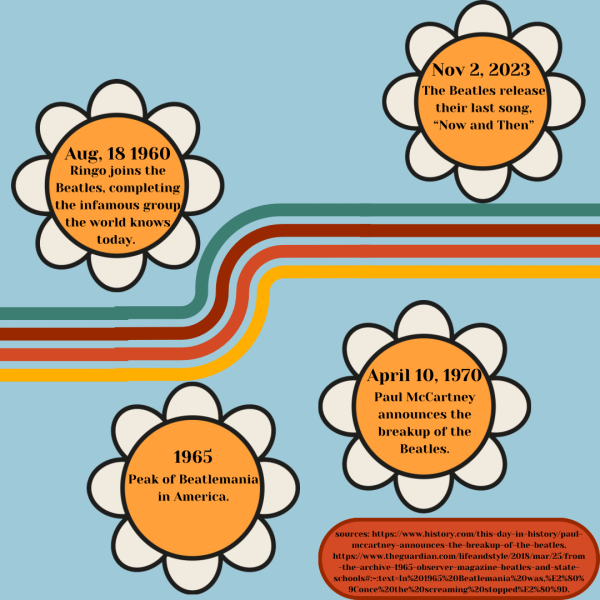
“My favorite aspect [of the song] is just that it exists. This [the release] was so random, I don’t think anyone saw this sort of thing coming, and being able to have essentially all four members be a part of the song is so cool. The line, ‘always return to me’ for some reason really stood out to me- something about how it’s sung itched a part of my brain… and how it contributes to the sad irony of the song,” magnet senior Isabel Baxter said.
The Beatles released “Now and Then” November 2 partnered with revamped versions of the Red and Blue compilation albums. Physical copies of the song, primarily sold as vinyl singles and a limited edition cassette, include “Love Me Do” on the b-side. “Love Me Do” debuted as the first Beatles single, released before their breakout record “Please Please Me” in 1962. The release strategy cheekily hints at the beginning and the end of the Beatles’ work together, and everything in between.
Songs using Lennon’s lyrics and melody, however, do not exclusively belong to the Beatles’ latest release. On Spotify, artists such as Claus Nielson and Apple Jam have shared songs using the lyrics present on the original tape. However, none of the songs quite capture the unique abilities of the united Beatles.
“I really liked the song. Typically, the Beatles aren’t my style, but the instrumentals were gorgeous and I felt like the lyrics were very interesting. The backstory seems neat too, with so much of it being pierced together. Honestly, it’s crazy to me that it works together as well as it does,” sophomore Meg Hollister said.
“Now and Then” embraces the melodic quality about it, fitting the melancholy overtone of its finality. With lyrics such as “I know it’s true/ it’s all because of you/ and if I make it through/ it’s all because of you,” the song intertwines sadness with a feeling of debt made by lost love. Due to fans’ knowledge that Lennon and McCartney frequently included messages for each other in their albums after the band’s break up, fans began to wonder if Lennon wrote the lyrics for McCartney.
The song features a particular instrumental moment reminiscent of Harrison’s sound, particularly in his first solo album, “All Things Must Pass.” The song also features a guitar solo he recorded in 1995. All in all, the song behaves as a beautiful ballad to the end of the era that the band ushered in.
The Chant’s rating: B+



